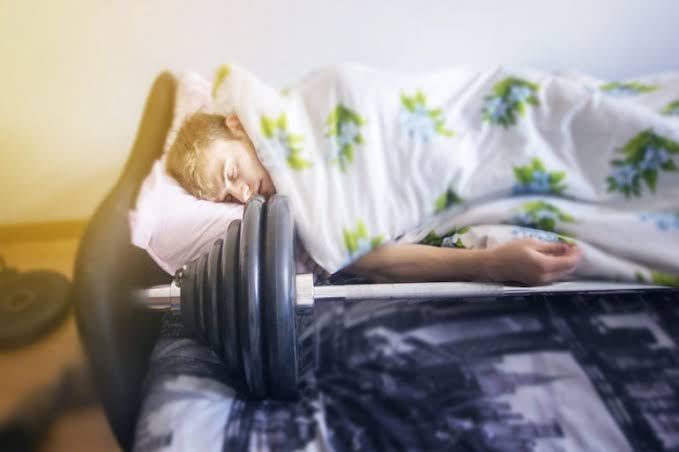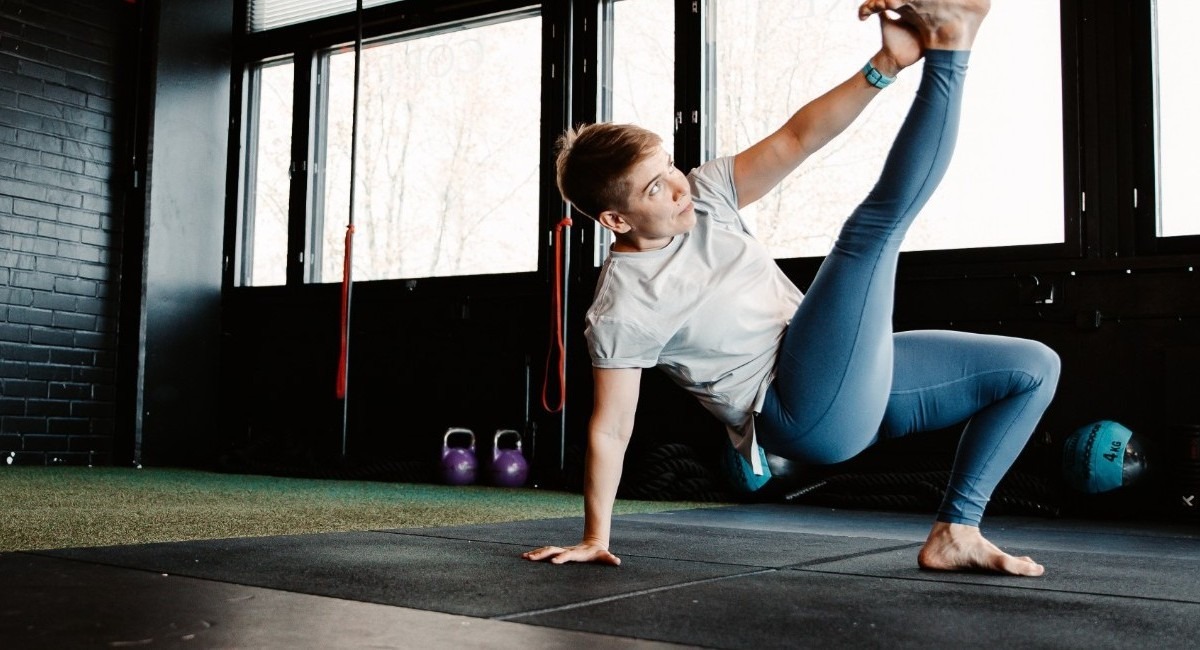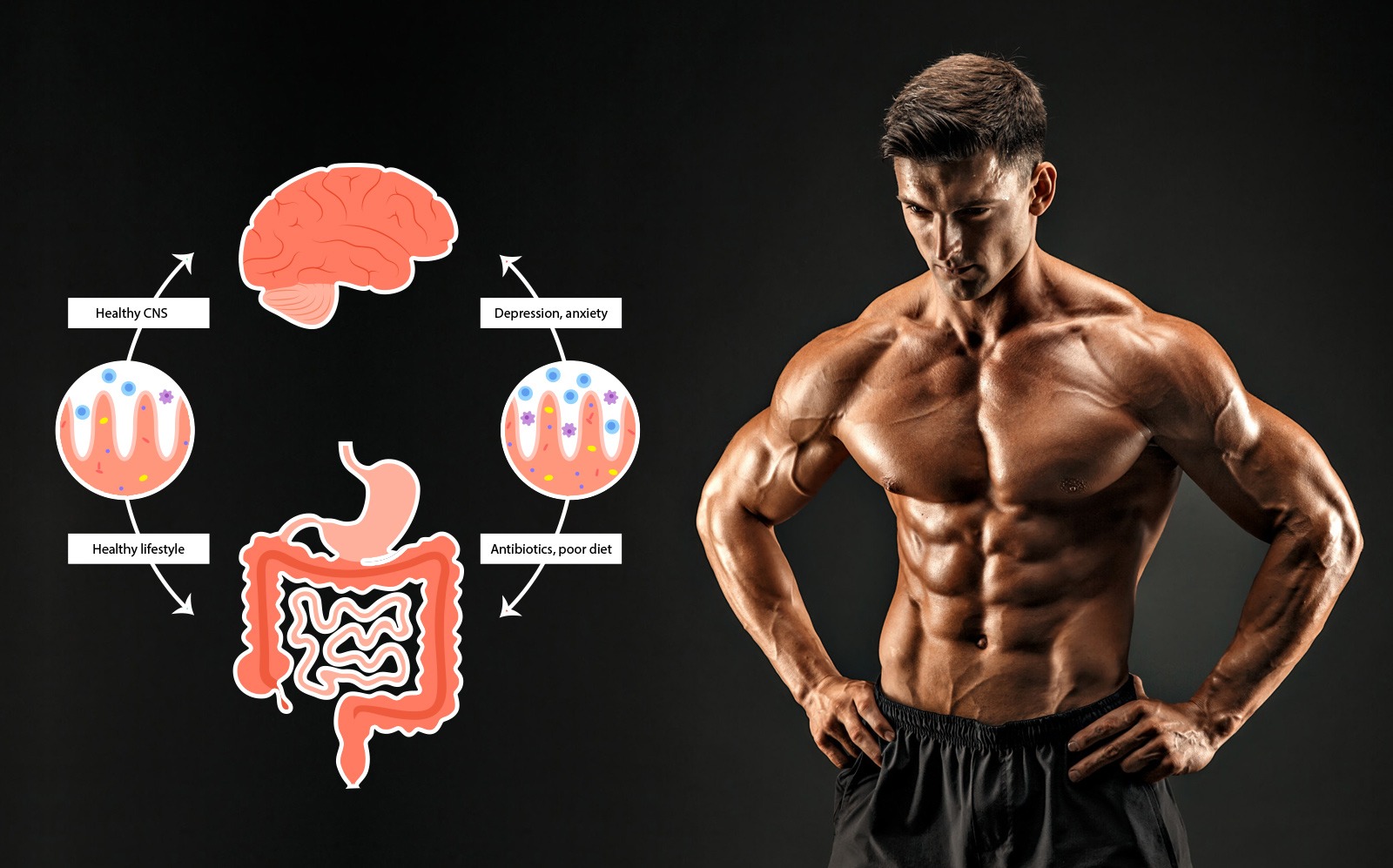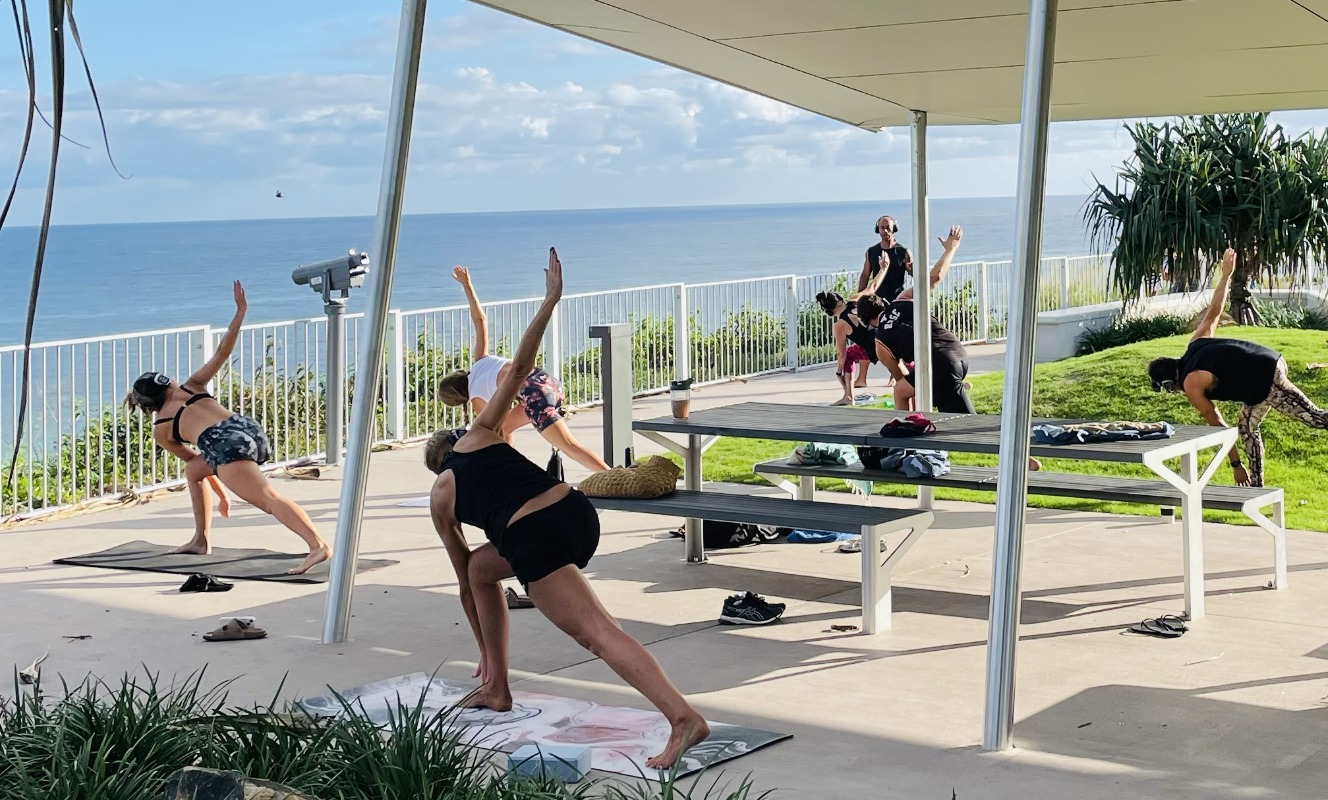
Sleep Fitness: How Rest Is Becoming the New Workout
Sleep fitness is redefining health by treating rest as a critical performance tool, not just downtime. Just as workouts strengthen muscles, consistent quality sleep restores the brain and body, fuels productivity, and supports emotional balance. With technology, wellness practices, and lifestyle shifts, people now recognize sleep as essential for longevity and peak performance.
💪 Fitness Guru
37 min read · 7, Sep 2025

Introduction
For decades, fitness was defined by intense workouts, long runs, and heavy lifting. But in today’s wellness-driven world, a surprising trend is emerging: sleep fitness. Once considered a passive activity, sleep is now recognized as an active pillar of health—just as crucial as diet and exercise.
Athletes, professionals, and everyday people are discovering that rest is not wasted time. Instead, it’s a performance tool. Proper sleep boosts immunity, sharpens focus, speeds recovery, balances hormones, and even improves workout results. In other words, sleep is becoming the new workout.
In this article, we’ll explore what sleep fitness is, why it matters, the science behind it, and how you can train your body to rest better for peak health and performance. For a long time, conversations around health and wellness have been dominated by exercise routines, superfoods, and cutting-edge gym equipment. People have proudly shared their intense workout schedules and strict diets, as if these were the only pillars of a healthy life. Yet in recent years, another, often overlooked, element has stepped into the spotlight—sleep. What was once considered a passive state of simply “shutting down” is now being celebrated as one of the most crucial aspects of overall well-being. This is where the concept of sleep fitness comes in, reframing rest not as laziness or indulgence, but as a vital workout for both body and mind.
Sleep fitness is essentially the recognition that sleep is an active process where the body repairs, restores, and strengthens itself. Just as a workout builds muscles and boosts endurance, quality sleep enhances brain function, improves metabolism, balances hormones, and increases immunity. The growing awareness around sleep’s role in performance and health has given it the same prestige once reserved only for physical training. Today, people are tracking their sleep cycles, investing in sleep-enhancing gadgets, and structuring their evenings with as much care as their mornings—all in the pursuit of becoming “fit sleepers.”
Science supports the shift. During sleep, the body undergoes several critical processes. In deep sleep, tissues repair, growth hormones are released, and the immune system fortifies itself. Rapid Eye Movement (REM) sleep, another key stage, enhances learning, creativity, and memory consolidation. When these cycles are disrupted due to poor sleep quality or insufficient rest, the consequences manifest in every area of life. Concentration wanes, mood worsens, productivity dips, and even physical performance in workouts declines. Chronic sleep deprivation has also been linked to serious health conditions like heart disease, diabetes, obesity, and weakened immunity. It’s no exaggeration to say that sleep is as important as food, water, and exercise for survival and vitality.
Interestingly, sleep fitness is not just about the number of hours spent in bed but the quality of those hours. Many people assume that if they get six or seven hours of sleep, they are fine. But poor sleep hygiene—things like scrolling endlessly on phones at night, irregular sleep schedules, or a caffeine-loaded diet—can fragment sleep cycles, leaving a person feeling groggy and unrested even after seemingly “enough” hours of rest. Sleep fitness pushes individuals to look beyond duration and focus on optimizing the environment, habits, and mindset around sleep.
Technology has become a surprising ally in this movement. Sleep trackers and smartwatches now analyze heart rate variability, oxygen levels, and even micro-movements to provide detailed sleep reports. Specialized mattresses can regulate temperature and reduce pressure points to promote uninterrupted rest. Light therapy devices and apps that play white noise or guided meditations help people transition smoothly into restorative sleep. In a way, people are treating bedtime routines the same way they once treated pre-workout stretches or post-workout recovery. The idea is simple: if the gym is where you build your body, the bedroom is where you rebuild it.
The cultural perception of sleep has also changed. Not long ago, being busy and surviving on minimal sleep was considered a badge of honor. “I’ll sleep when I’m dead” was a phrase thrown around proudly, equating rest with weakness or lack of ambition. But today, high performers—from athletes to CEOs—are openly advocating for better sleep. Olympic champions emphasize how recovery nights are as important as training days. Corporate leaders acknowledge that well-rested employees are more creative, innovative, and efficient. Sleep has transformed from being seen as downtime to being celebrated as “prime time” for the body’s recovery.
This cultural pivot is also tied to mental health. Sleep and emotional well-being are deeply intertwined. Insufficient or poor-quality sleep can increase anxiety, irritability, and risk of depression. On the other hand, good sleep promotes emotional stability, better decision-making, and stress resilience. As mental health awareness grows globally, people are learning that sleep is not just a luxury but an essential therapy for the mind. In fact, some psychologists describe sleep as the brain’s natural form of emotional regulation and detox.
For individuals trying to embrace sleep fitness, the approach is holistic. It begins with developing good sleep hygiene: going to bed and waking up at consistent times, limiting screen exposure before bed, creating a calming evening ritual, and ensuring the sleep environment is cool, dark, and quiet. Nutrition also plays a role—avoiding stimulants like caffeine and alcohol before bedtime can significantly improve sleep quality. Exercise, ironically, also supports sleep fitness, but only when timed properly. Strenuous workouts too close to bedtime may keep the body alert, while morning or afternoon exercise helps regulate the circadian rhythm, making sleep come more naturally at night.
The future of sleep fitness looks even more exciting. Researchers are exploring how personalized sleep plans, tailored to genetics and lifestyle, can optimize rest. Biohacking communities are experimenting with techniques like polyphasic sleep cycles, though these remain controversial. Workplaces are beginning to incorporate nap pods and flexible hours to align with natural energy rhythms. Schools are reconsidering early start times to support adolescent sleep needs. In every corner of society, rest is being reimagined not as wasted time but as productive recovery.
At its heart, the movement of sleep fitness is about balance. Just as a workout challenges the body and nutrition fuels it, sleep restores it. Neglecting this vital pillar creates an imbalance that no amount of supplements or exercise can fix. By treating rest as seriously as we treat training, we allow our bodies and minds to perform at their highest potential.
So the next time someone asks about your fitness routine, perhaps the most powerful response is not about the miles you ran or the weights you lifted, but about the quality of your sleep. Because in the modern world of wellness, rest is no longer just a pause—it is the ultimate workout for your health, performance, and longevity.
What is Sleep Fitness?
Sleep fitness means treating your sleep with the same discipline and structure as a workout routine. It’s about:
- Prioritizing consistent, quality rest
- Understanding sleep cycles and optimizing them
- Using habits, routines, and environments to maximize sleep recovery
Instead of “crashing” at night, you train your sleep—just like building stamina at the gym.
Why Sleep Matters More Than We Think
Sleep is not just about feeling less tired. During deep rest, your body undergoes essential processes that directly affect physical and mental health:
- Muscle Recovery
- Growth hormone is released during deep sleep, repairing tissues and building muscle.
- Brain Detox
- The brain’s glymphatic system flushes out toxins, improving memory and focus.
- Hormonal Balance
- Lack of sleep raises cortisol (stress hormone) and disrupts hunger hormones, leading to cravings and weight gain.
- Stronger Immunity
- Good sleep strengthens your body’s defense system against infections.
- Improved Performance
- Athletes who sleep 8+ hours react faster, recover quicker, and perform better.
The Science of Sleep Cycles
Every night, your body cycles through stages:
- Light Sleep (N1, N2): Transition stage, heart rate slows.
- Deep Sleep (N3): Physical recovery, tissue repair, immune strengthening.
- REM Sleep: Dream stage, emotional processing, memory consolidation.
Optimal sleep fitness means going through 4–6 complete cycles per night (about 7–9 hours). Skipping stages—like deep or REM—can leave you exhausted even if you spend “enough” time in bed.
How Poor Sleep Affects Fitness
- Low Energy: Workouts feel harder; stamina drops.
- Slower Recovery: Muscle soreness lingers longer.
- Weight Gain: Poor sleep increases appetite and sugar cravings.
- Weaker Immunity: More frequent illness interrupts training.
- Mental Fog: Reduced motivation and focus.
Simply put—without sleep, your workouts and diet won’t reach their full potential.
The Role of Sleep Fitness in Modern Health
Just like steps, calories, and heart rates are tracked, people now track their sleep performance using apps and wearables. Sleep fitness focuses on:
- Duration: Getting 7–9 hours of consistent rest.
- Quality: Spending enough time in deep and REM sleep.
- Consistency: Going to bed and waking up at the same time daily.
- Recovery Index: How rested and energized you feel upon waking.
Daily Practices to Improve Sleep Fitness
Morning Routine
- Get sunlight within 30 minutes of waking (resets circadian rhythm).
- Hydrate with water before caffeine.
- Do light movement or stretching to energize your body.
Afternoon Routine
- Limit caffeine after 2 pm.
- Eat balanced meals to stabilize blood sugar.
- Take a short 10–20 min power nap if needed (not longer).
Evening Routine
- Create a “wind-down” ritual: herbal tea, reading, journaling.
- Avoid blue light from phones/laptops 1 hour before bed.
- Keep your bedroom cool, dark, and quiet.
- Sleep at the same time every night—even weekends.
Weekly Sleep Fitness Habits
- Digital Detox Night: One evening free of screens before bed.
- Stretch + Breath Session: Do yoga or breathing exercises to calm the nervous system.
- Bedroom Reset: Wash sheets, declutter, add calming scents like lavender.
- Sleep Check-In: Reflect on how many nights you felt truly rested.
- Nature Day: Spend at least 1–2 hours outdoors on weekends to reset your body clock.
Sleep Nutrition: Foods That Support Rest
- Magnesium-Rich Foods: Almonds, spinach, pumpkin seeds (calm muscles).
- Tryptophan Sources: Turkey, eggs, tofu (boost serotonin → melatonin).
- Complex Carbs: Oats, brown rice (stabilize blood sugar).
- Herbal Teas: Chamomile, lavender, tulsi (reduce anxiety).
- Avoid: Caffeine, alcohol, and heavy fried foods before bed.
Exercise + Sleep: A Powerful Duo
- Better Sleep Through Exercise: Regular workouts reduce insomnia and improve deep sleep.
- Timing Matters: Morning or afternoon exercise promotes better sleep; late-night intense workouts can overstimulate.
- Yoga and Stretching: Restorative yoga before bed calms the body.
- Sleep Recovery Boosts Exercise: After good sleep, performance, endurance, and focus skyrocket.
Myths About Sleep Fitness: Busted!
“I can catch up on sleep over the weekend.”
→ False. Sleep debt doesn’t fully recover; consistency is key.
“Sleeping pills are the best solution for insomnia.”
→ Wrong. They may help short-term but disrupt natural cycles long-term.
“More sleep always equals better health.”
→ Not true. Oversleeping (10+ hrs) can be linked to depression and poor health.
“Naps ruin night sleep.”
→ False if short. Power naps of 20 mins actually improve alertness without disturbing nighttime rest.
“You can train your body to need less sleep.”
→ Completely false. Your body has biological needs—cutting sleep reduces health, no matter how “used to it” you feel.
Sample Sleep Fitness Routine
Morning
Wake at 7 am, open windows for sunlight, hydrate, do light stretching.
Afternoon
Eat a wholesome lunch, take a short walk, avoid late coffee.
Evening
Dinner 2–3 hours before bed, dim lights, read a book.
Night
Wind-down with breathing exercises, no screens, herbal tea, lights out at 11 pm.
Conclusion
Sleep is not laziness. It is active recovery—a vital workout for your brain, muscles, and heart. By practicing sleep fitness, you’re not just resting—you’re building resilience, sharpening focus, balancing hormones, and boosting immunity.
Think of your bed as your night gym, where your body repairs, grows, and recharges. Pairing exercise, mindful eating, and sleep fitness creates the ultimate trio for health and longevity.
So tonight, don’t just crash—train your sleep. Build routines, nourish your body, and treat rest as the most important workout of your day.
Q&A Section
Q1:- What is meant by the term "Sleep Fitness"?
Ans :- Sleep fitness refers to treating sleep as an essential part of health and performance, much like exercise or diet, focusing on quality, consistency, and recovery.
Q2:- Why is sleep considered as important as exercise and nutrition for overall health?
Ans :- Quality sleep restores the body, strengthens immunity, regulates hormones, boosts memory, and enhances both physical and mental performance.
Q3:- How does lack of proper sleep affect daily productivity?
Ans :- Insufficient rest impairs concentration, slows reaction times, increases stress, and decreases decision-making ability, leading to lower productivity.
Q4:- What role do circadian rhythms play in sleep fitness?
Ans :- Circadian rhythms are natural biological clocks that regulate sleep-wake cycles. Aligning with them helps improve sleep quality and energy levels.
Q5:- How is technology influencing the concept of sleep fitness?
Ans :- Wearable trackers, smart mattresses, and sleep apps provide insights on sleep patterns, helping individuals optimize rest and recovery.
Q6:- Why do athletes and professionals prioritize sleep fitness today?
Ans :- Because quality rest enhances recovery, reduces injury risk, improves focus, and maximizes overall performance in both sports and work.
Q7:- How does sleep fitness contribute to mental well-being?
Ans :- Adequate sleep reduces anxiety, stabilizes mood, boosts resilience to stress, and supports emotional regulation.
Q8:- What lifestyle habits support better sleep fitness?
Ans :- Consistent sleep schedules, reduced screen time, calming pre-bed routines, balanced diets, and regular exercise all promote healthy rest.
Q9:- Can poor sleep really lead to long-term health issues?
Ans :- Yes, chronic sleep deprivation is linked to heart disease, obesity, diabetes, depression, and weakened immunity.
Q10:- How is sleep fitness becoming a trend in wellness culture?
Ans :- Sleep is now viewed as a proactive tool for performance and longevity, with wellness brands, gyms, and healthcare professionals promoting it as part of daily fitness.
Similar Articles
Find more relatable content in similar Articles

The Science of Breathwork: Fitness Beyond Muscles...
Exploring how conscious contro.. Read More

Fitness Lessons from Wild Animals – Move Like Nature Intende..
“Discover how observing wild a.. Read More

Microbiome and Muscle: Gut Health as a Hidden Fitness Tool...
Unlock the hidden potential of.. Read More

The Silent Workout: Fitness Without Any Equipment or Noise...
“Discover the power of silent .. Read More
© 2024 Copyrights by rFitness. All Rights Reserved.